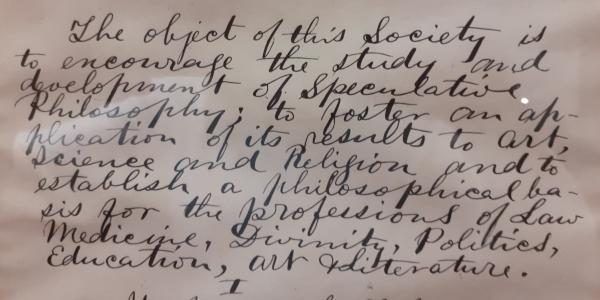
Research
broad research areas
Find faculty exploring these topics
Metaphysics & Epistemology
Metaphysics is concerned with the nature of existence and the universe, and epistemology is a related area focused on exploring knowledge.
Our FacultyPhilosophy of Science & the Sciences
Philosophy of science is concerned with the foundations, methods, and implications of science and of various branches of science.
Our FacultyPhilosophy of Mind & Cognitive Science
These areas investigate the nature of cognition, probing the nature of cognitive psychology, neuroscience, computer science, and related disciplines.
Our FacultyEthics & Value
Philosophers working in ethics and value look into and question the frameworks of personal and societal morality, and how these influence human behavior.
Our FacultyHistory of Philosophy
Experts in history of philosophy focus on one or more eras of human thought and their significance at the time and, often, their relevance in terms of contemporary understanding.
Our Facultythe faculty bookshelf
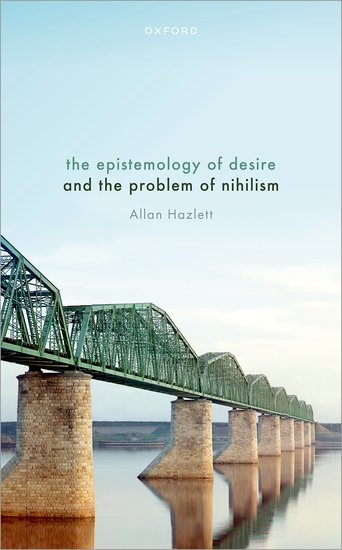
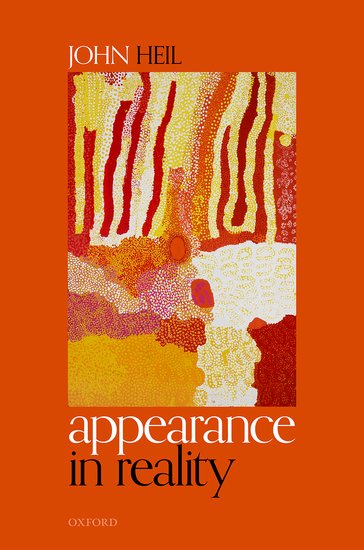
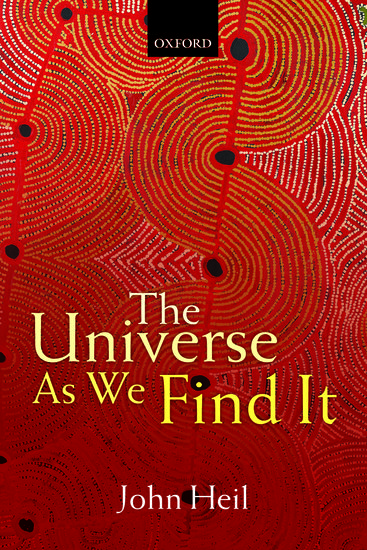
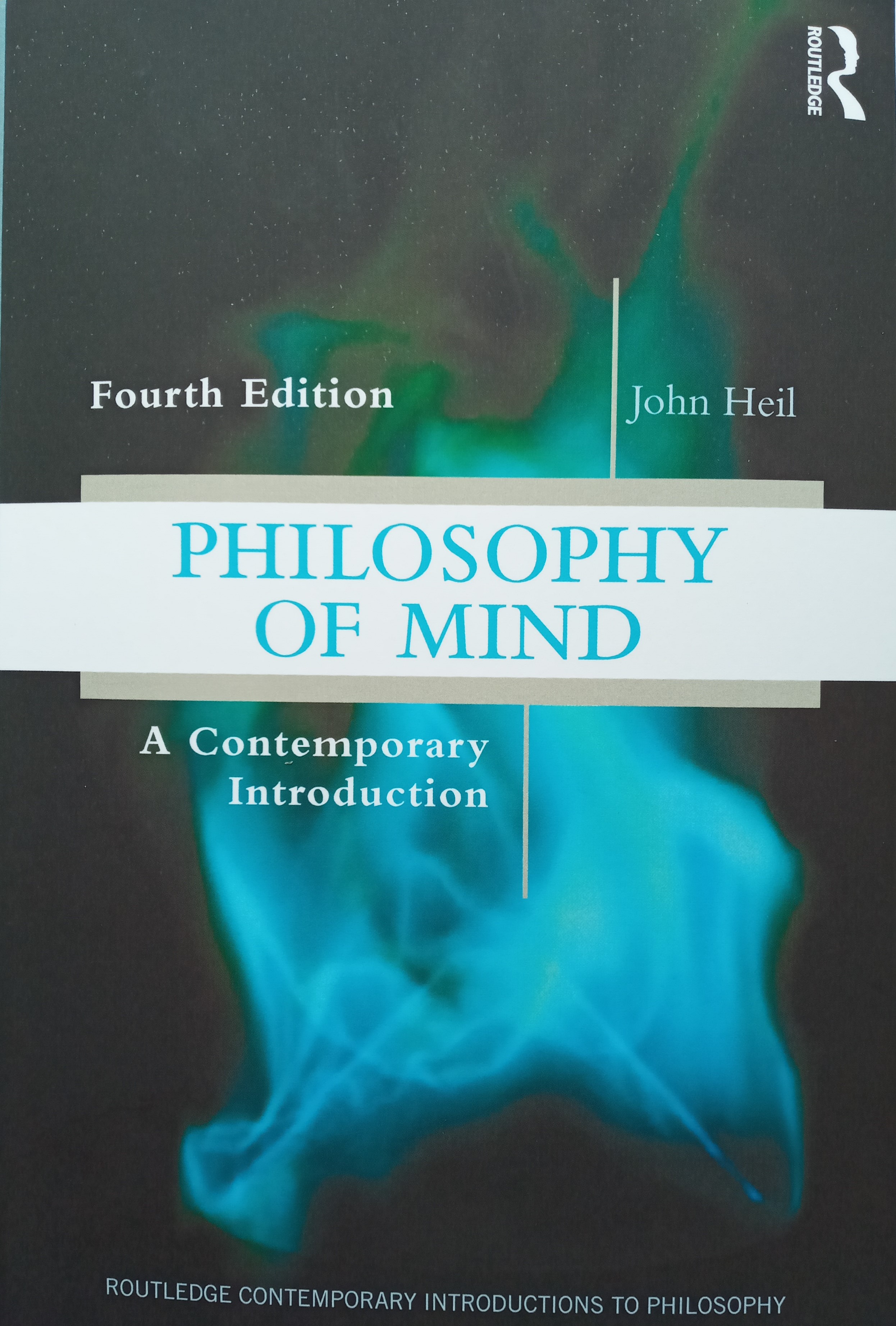


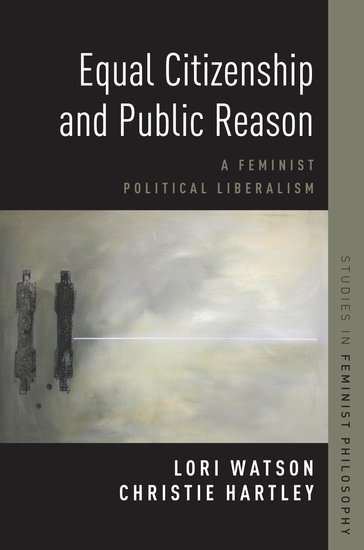
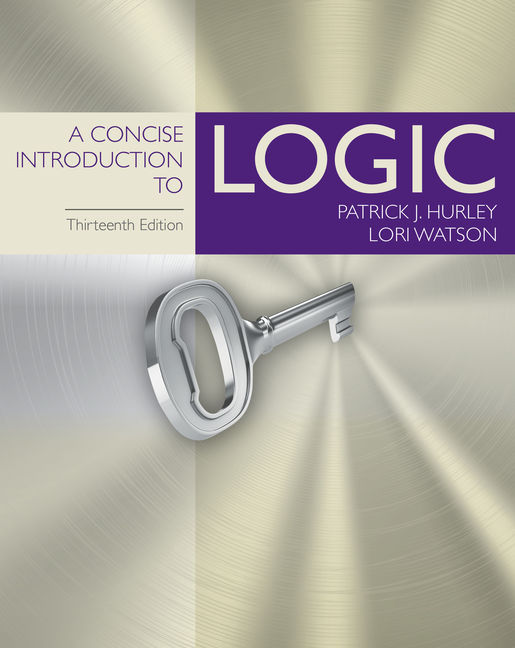
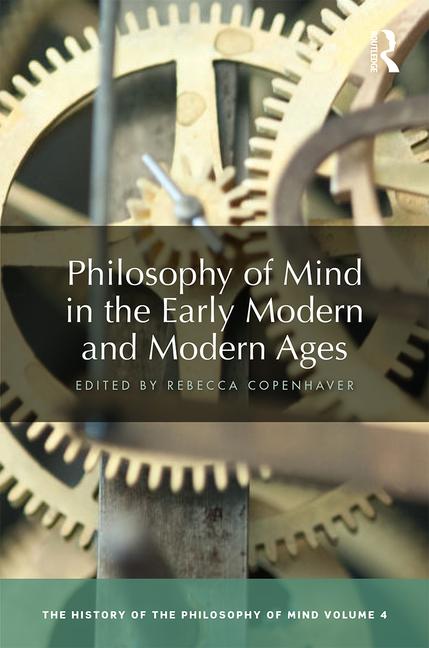
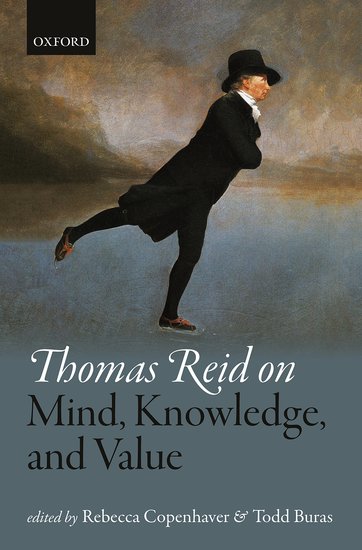
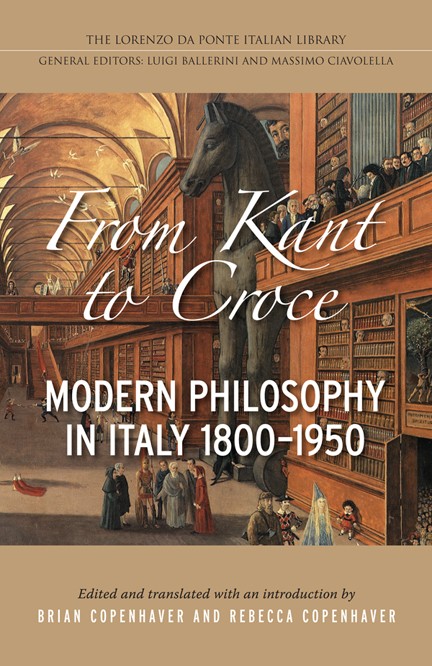
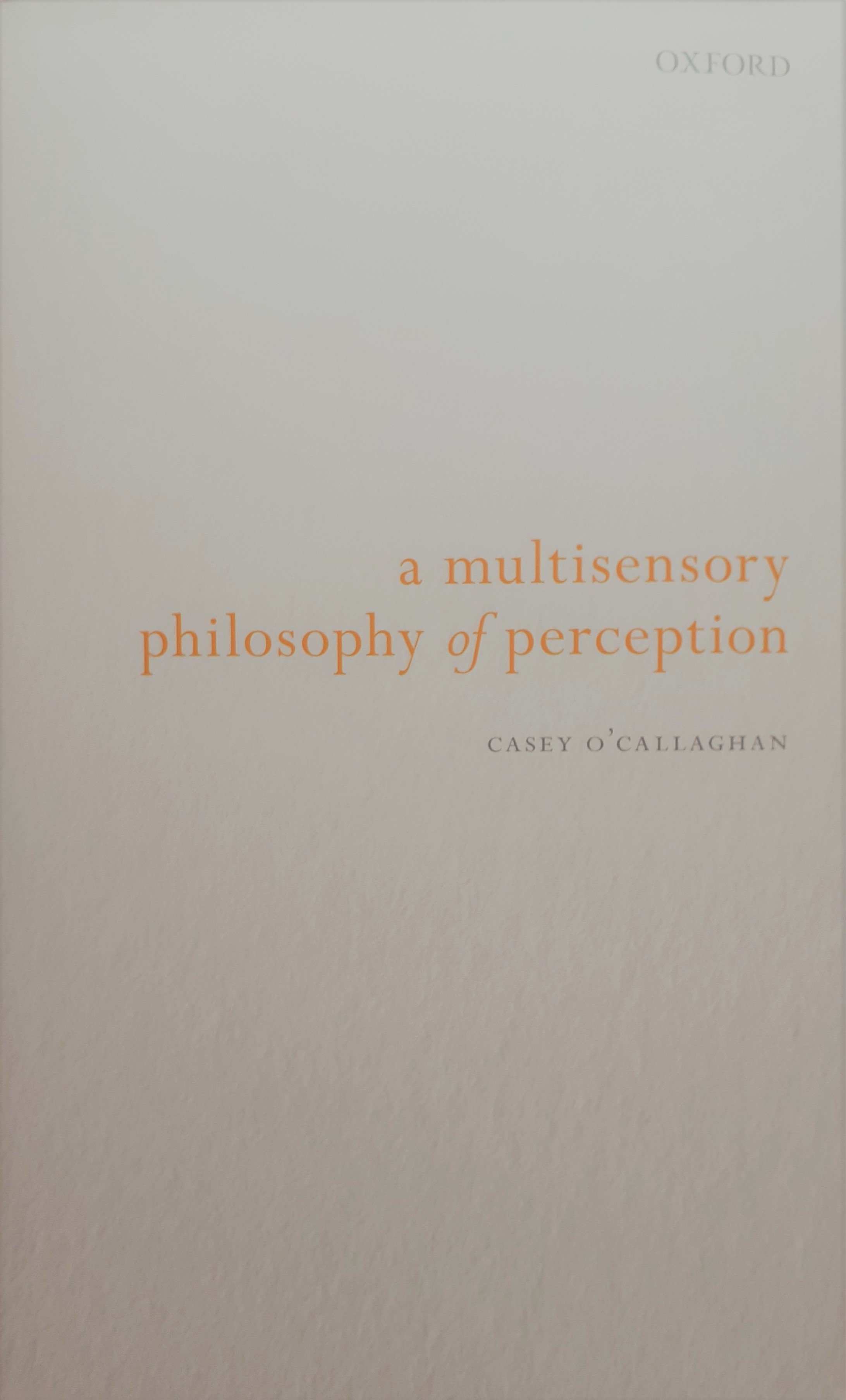
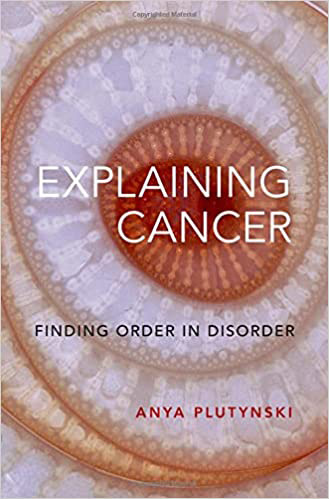
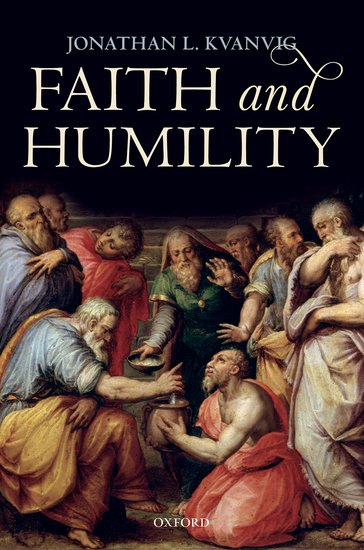
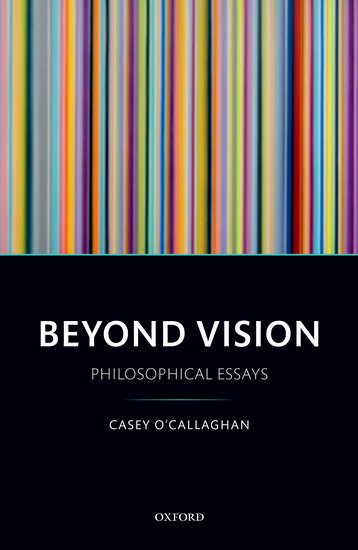
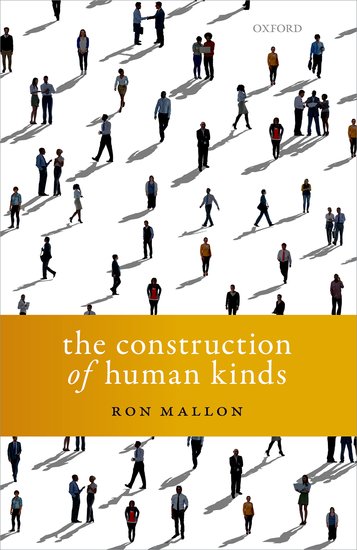
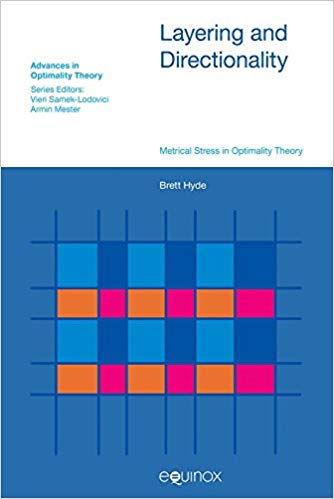
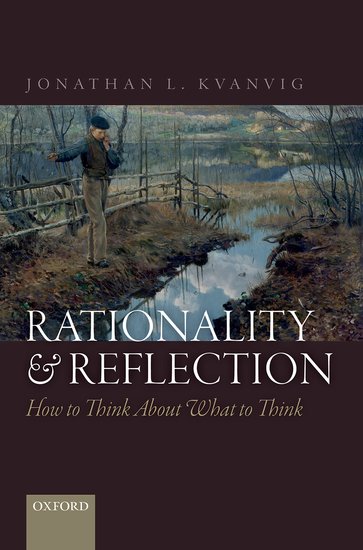
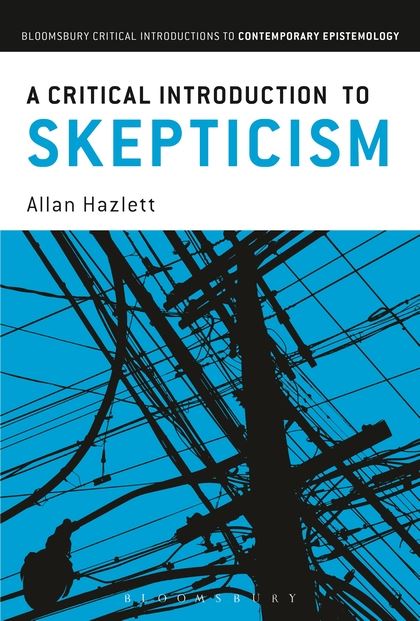
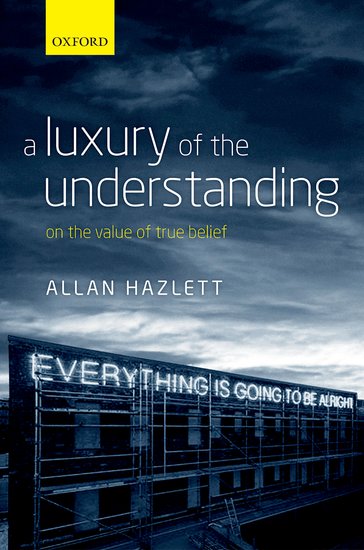
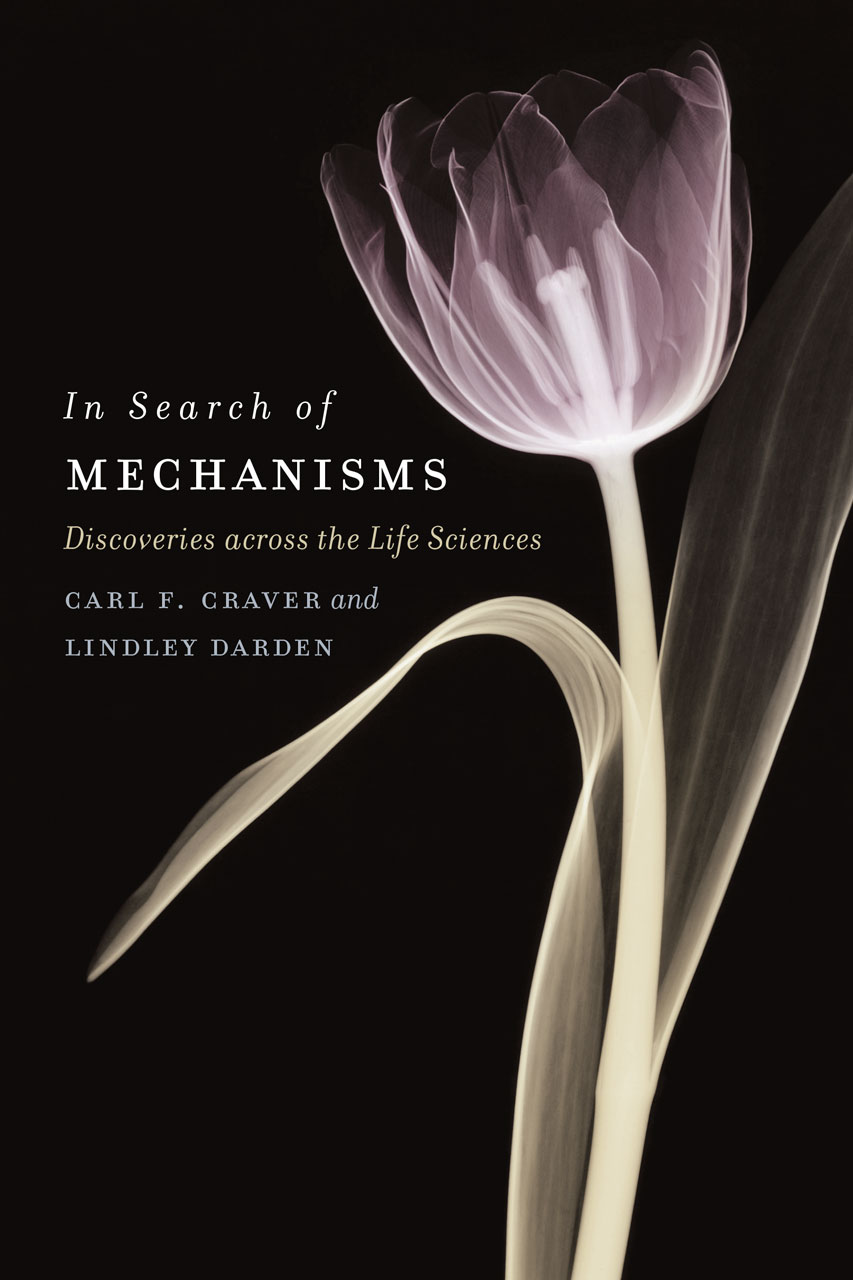

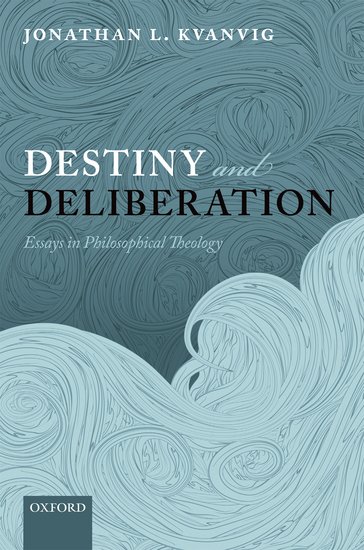



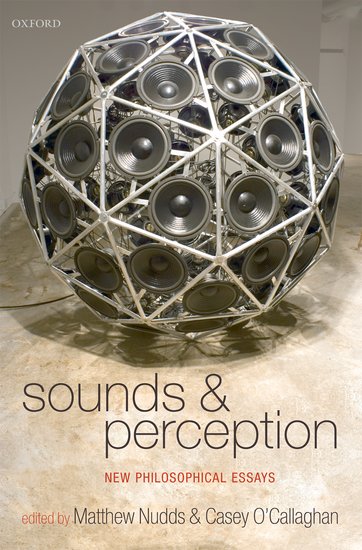
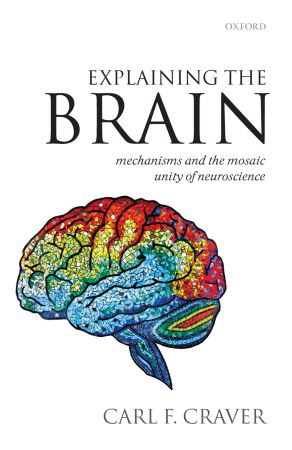

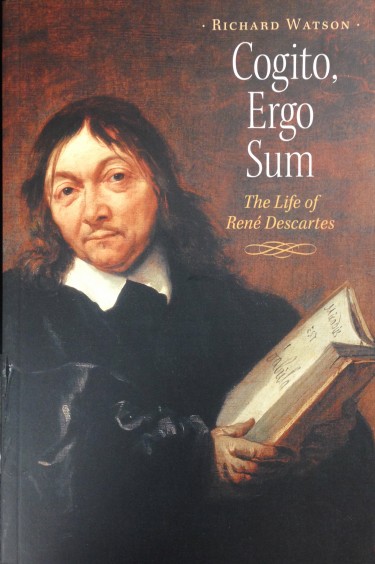
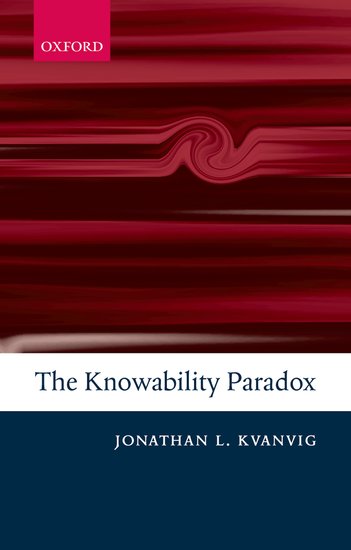
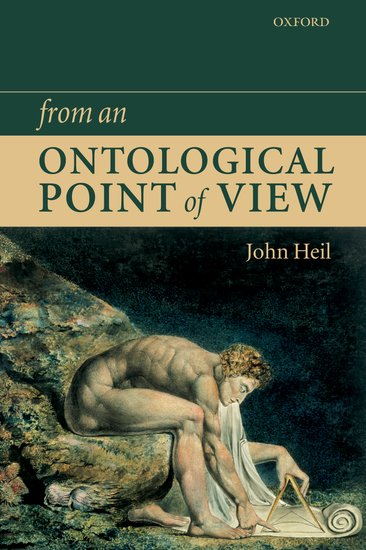
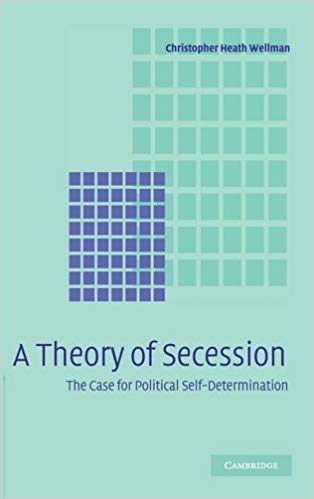
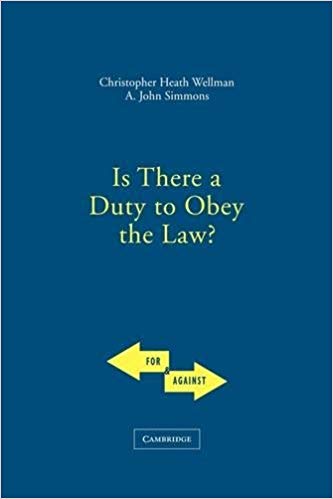

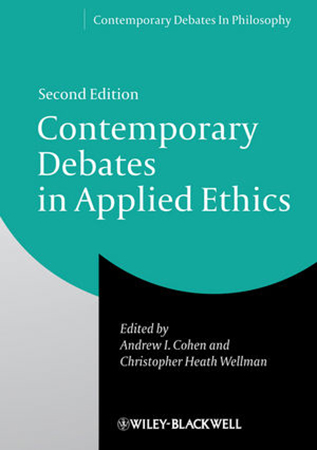
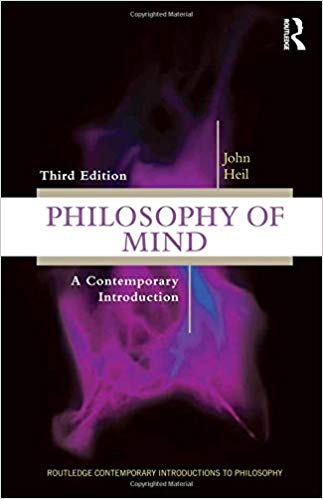

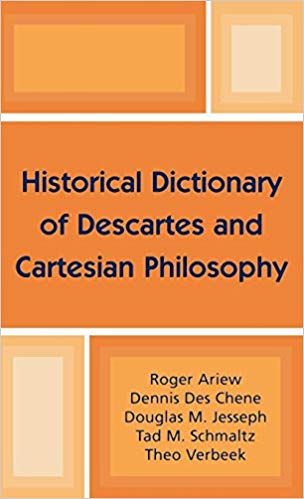


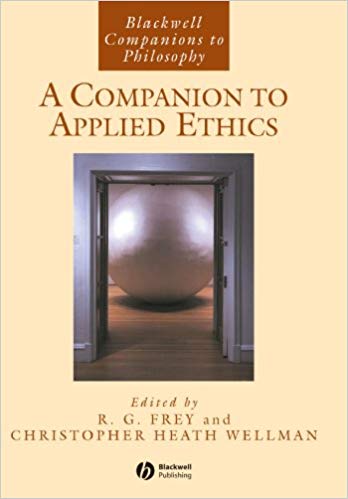
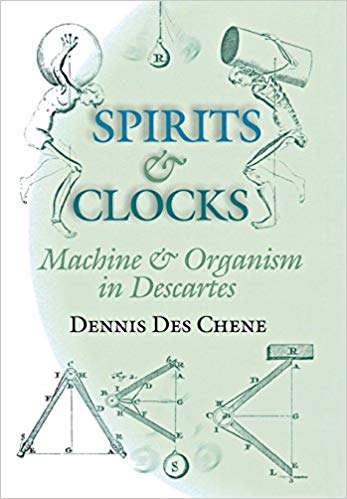
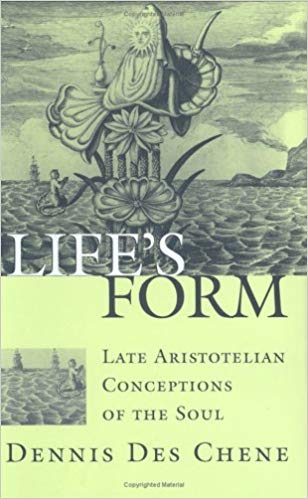


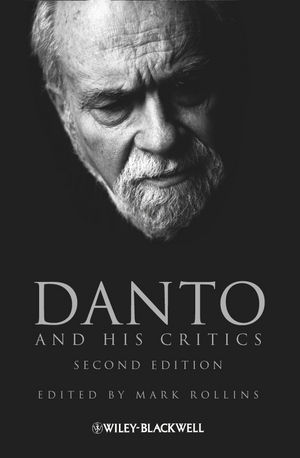


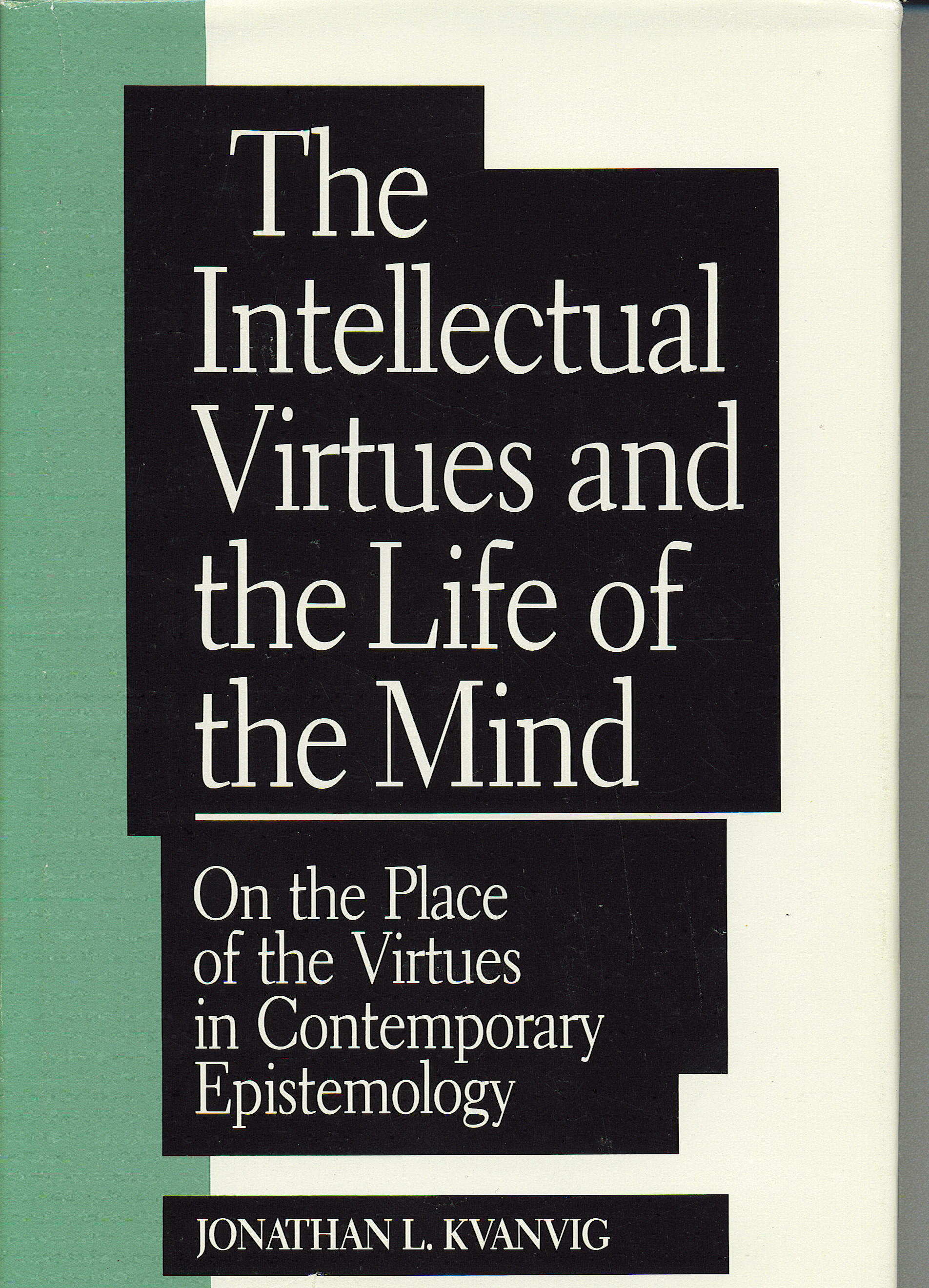

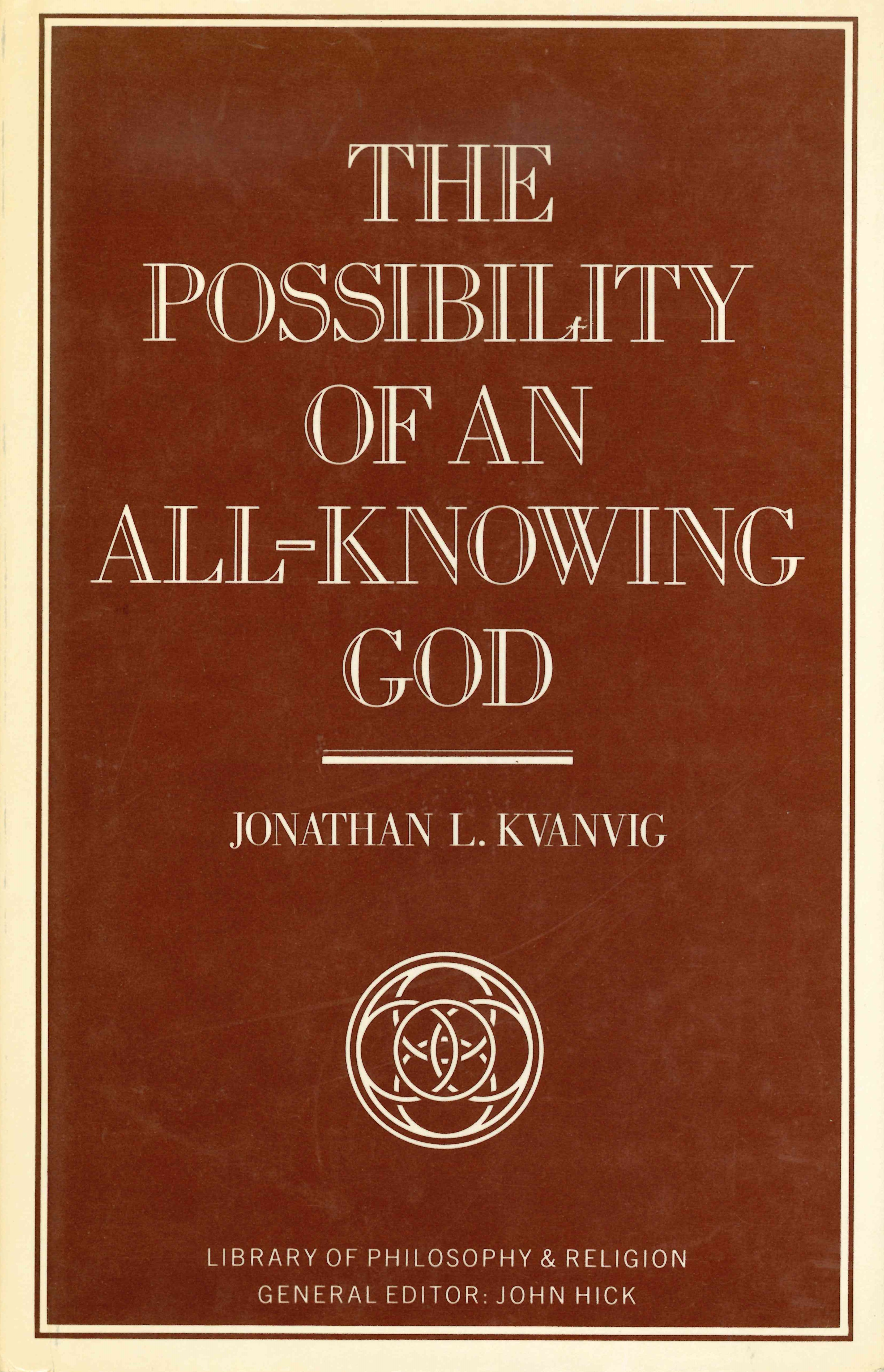
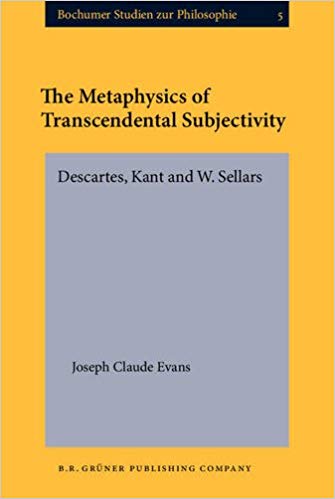
The Epistemology of Desire and the Problem of Nihilism
By Allan Hazlett
Most people have wondered whether anything really matters, some have temporarily thought that nothing really matters, and some philosophers have defended the view that nothing really matters. However, if someone thinks that nothing matters--if they are a "nihilist about value"--then it seems that it is irrational for them to care about anything. It seems that nihilism about value mandates total indifference. This is the "problem of nihilism" Allan Hazlett addresses in The Epistemology of Desire and the Problem of Nihilism. Hazlett argues that the problem of nihilism arises because desire--and thus caring--is a species of evaluation that admits of irrationality. This contradicts the influential Humean view that desire does not admit of irrationality, which has a ready solution to the problem of nihilism: since desire does not admit of irrationality, it cannot be irrational to care about something that you believe does not matter. However, following G.E. Anscombe, Hazlett argues that desire has the same relationship to goodness as belief has to truth: just as truth is the accuracy condition for belief, goodness is the accuracy condition for desire. This reveals desire as an appropriate target of epistemological inquiry, in the same way that belief is an appropriate target of epistemological inquiry. Desires can amount to knowledge (in the same way that beliefs can amount to knowledge) and, crucially for the problem of nihilism, desire admits of irrationality (in the same way that belief admits of irrationality). Nevertheless, although it is obviously irrational to believe something that you believe is not true, Hazlett argues that it is not irrational to desire something you believe is not good, despite the fact that goodness is the accuracy condition for desire. This provides a solution to the problem of nihilism, and shows that nihilism about value can coherently be combined with the anti-Humean view that desire is a species of evaluation.
Appearance in Reality
By John Heil
Appearance in Reality deals with this question. You rely on instruments and everyday experience to verify your theories, but these theories are about unseen things that seem to have very strange properties. What’s the relationship between the appearance of things and their reality?
Metaphysics in that sense is really inescapable. Everybody poses these questions to themselves, but when people recognize that they've run into a metaphysical problem they typically say, “oh okay, that's just for the philosophers,” and they walk away from it, not realizing that they’ve actually taken a philosophical position already.
The Universe As We Find It
By John Heil
What does reality encompass? Is reality exclusively physical? Or does reality include nonphysical--mental, and perhaps 'abstract'--aspects? What is it to be physical or mental, or to be an abstract entity? What are the elements of being, reality's raw materials? How is the manifest image we inherit from our culture and refine in the special sciences related to the scientific image as we have it in fundamental physics? Can physics be understood as providing a 'theory of everything', or do the various sciences make up a hierarchy corresponding to autonomous levels of reality? Is our conscious human perspective on the universe in the universe or at its limits? What, if anything, makes ordinary truths, truths of the special sciences, and truths of mathematics true? And what is it for an assertion or judgment to be 'made true'? In The Universe As We Find It, John Heil offers answers to these questions framed in terms of a comprehensive ontology of substances and properties inspired by Descartes, Locke, their successors, and their latter day exemplars. Substances are simple, lacking parts that are themselves substances. Properties are modes--particular ways particular substances are--and arrangements of propertied substances serve as truthmakers for all the truths that have truthmakers. Heil argues that the deep story about the nature of these truthmakers can only be told by fundamental physics.
Philosophy of Mind: A Contemporary Introduction
By John Heil
When first published, John Heil's introduction quickly became a widely used guide for students with little or no background in philosophy to central issues of philosophy of mind. Heil provided an introduction free of formalisms, technical trappings, and specialized terminology. He offered clear arguments and explanations, focusing on the ontological basis of mentality and its place in the material world. The book concluded with a systematic discussion of questions the book raises--and a sketch of a unified metaphysics of mind--thus inviting scholarly attention while providing a book very well suited for an introductory course.
The book is intended as a reader-friendly introduction to issues in the philosophy of mind, including mental–physical causal interaction, computational models of thought, the relation minds bear to brains, and assorted -isms: behaviorism, dualism, eliminativism, emergentism, functionalism, materialism, neutral monism, and panpsychism. The Fourth Edition reintroduces a chapter on Donald Davidson and a discussion of 'Non-Cartesian Dualism', along with a wholly new chapter on emergence and panpsychism. A concluding chapter draws together material in earlier chapters and offers what the author regards as a plausible account of the mind's place in nature. Suggested readings at the conclusion of each chapter have been updated, with a focus on accessible, non-technical material.
Key Features of the Fourth Edition
- Includes a new chapter, 'Emergence and Panpsychism' (Chapter 13), reflecting growing interest in these areas
- Reintroduces and updates a chapter on Donald Davidson, 'Radical Interpretation' (Chapter 8), which was excised from the previous edition
- Updates 'Descartes' Legacy' (Chapter 3) to include a discussion of E. J. Lowe's arresting 'Non-Cartesian Dualism', also removed from the previous edition
- Includes a highly revised final chapter, which draws together much of the previous material and sketches a plausible account of the mind's place in nature
- Updated 'Suggested Reading' lists at the end of each chapter
Debating Sex Work
By Jessica Flanigan and Lori Watson
Prostitution is often referred to as "oldest profession." Critics of this expression redescribe it as "the oldest oppression." Debates about how best to understand and regulate prostitution are bound up with difficult moral, legal, and political questions. Indeed, it can be approached from numerous angles--is buying and selling sex fundamentally wrong? How can it possibly be regulated? How can sex workers be protected, if they are allowed to work at all? In this concise, for-and-against volume, ethicists Lori Watson and Jessica Flanigan engage with each other on the nature and consequences of sex work, revealing new and profound ways in which to understand it.
Debating Pornography
By Andrew Altman and Lori Watson
This volume takes an unusual but radical approach by analyzing pornography philosophically. Philosophers Andrew Altman and Lori Watson recalibrate debates by viewing pornography from distinctly ethical platforms -- namely, does a person's right to produce and consume pornography supersede a person's right to protect herself from something often violent and deeply misogynistic?
Equal Citizenship and Public Reason
By Christie Hartley and Lori Watson
This book is a defense of political liberalism as a feminist liberalism. The first half of the book develops and defends a novel interpretation of political liberalism. It is argued that political liberals should accept a restrictive account of public reason and that political liberals' account of public justification is superior to the leading alternative, the convergence account of public justification. The view is defended from the charge that such a restrictive account of public reason will unduly threaten or undermine the integrity of some religiously oriented citizens and an account of when political liberals can recognize exemptions, including religious exemptions, from generally applicable laws is offered. In the second half of the book, it is argued that political liberalism's core commitments restrict all reasonable conceptions of justice to those that secure genuine, substantive equality for women and other marginalized groups. Here it is demonstrated how public reason arguments can be used to support law and policy needed to address historical sites of women's subordination in order to advance equality; prostitution, the gendered division of labor and marriage, in particular, are considered.
A Concise Introduction to Logic | 13th Edition
By Patrick J. Hurley and Lori Watson
From Amazon: Over a million students have learned to be more discerning at constructing and evaluating arguments with the help of A CONCISE INTRODUCTION TO LOGIC, 13th Edition. The text's clear, friendly, thorough presentation has made it the most widely used logic text in North America. The book shows you how the content connects to real-life problems and gives you everything you need to do well in your logic course. Doing well in logic improves your skills in ways that translate to other courses you take, your everyday life, and your future career. The accompanying technological resources offered through MindTap, a highly robust online platform, include self-grading interactive exercises, a new digital activity that allows you to apply the skills you learn to a real-world problem, and videos to reinforce what you learn in the book and hear in class.
Philosophy of Mind in the Early Modern and Modern Ages
Edited By Becko Copenhaver
From Routledge: The early modern period is arguably the most pivotal of all in the study of the mind, teeming with a variety of conceptions of mind. Some of these posed serious questions for assumptions about the nature of the mind, many of which still depended on notions of the soul and God. It is an era that witnessed the emergence of theories and arguments that continue to animate the study of philosophy of mind, such as dualism, vitalism, materialism, and idealism.
Covering pivotal figures in philosophy such as Descartes, Hobbes, Kant, Leibniz, Cavendish, and Spinoza, Philosophy of Mind in the Early Modern and Modern Ages provides an outstanding survey of philosophy of mind of the period. With an introduction by Rebecca Copenhaver and sixteen specially commissioned chapters by an international team of contributors.
Essential reading for students and researchers in philosophy of mind, enlightenment philosophy, and the history of philosophy, Philosophy of Mind in the Early Modern and Modern Ages is also a valuable resource for those in related disciplines such as religion, history of psychology, and history of science.
Thomas Reid on Mind, Knowledge, and Value
Edited By Rebecca Copenhaver and Todd Buras
This volume offers a fresh view of the work of Thomas Reid, a leading figure in the history of eighteenth-century philosophy. A team of leading experts in the field explore the significance of Reid's thought in his time and ours, focusing in particular on three broad themes: mind, knowledge, and value. Together, they argue that Reid's philosophy is about developing agents in a rich world of objects and values, agents with intellectual and active powers whose regularity is productive. Though such agents are equipped at first with rudimentary abilities, those abilities are responsive. Our powers consist in a fundamental and on-going engagement with the world, a world that calls on us to be flexible, sensitive, astute, and ultimately, practical. Thomas Reid on Mind, Knowledge, and Value represents both the vitality of Reid's work, and the ways in which current philosophers are engaging with his ideas.
From Kant to Croce: Modern Philosophy in Italy, 1800-1950
By Brian Copenhaver and Becko Copenhaver
From Kant to Croce is a comprehensive, highly readable history of the main currents and major figures of modern Italian philosophy, described in a substantial introduction that details the development of the discipline during this period. Brian P. Copenhaver and Rebecca Copenhaver provide the only up-to-date introduction in English to Italy's leading modern philosophers by translating and analysing rare and original texts and by chronicling the lives and times of the philosophers who wrote them. Thoroughly documented and highly readable, From Kant to Croce examines modern Italian philosophy from the perspective of contemporary analytic philosophy.
A Multisensory Philosophy of Perception
By Casey O'Callaghan
Most of the time people perceive using multiple senses. Out walking, we see colors and motion, hear chatter and footsteps, smell petrichor after rain, feel a breeze or the brush of a shoulder. We use our senses together to navigate and learn about the world. In spite of this, scientists and philosophers alike have merely focused on one sense at a time. Nearly every theory of perception is unisensory. This book instead offers a revisionist multisensory philosophy of perception. Casey O'Callaghan considers how our senses work together, in contrast with how they work separately and independently, and how one sense can impact another, leading to surprising perceptual illusions. The joint use of multiple senses, he argues, enables novel forms of perception and experience, such as multisensory rhythms, motions, and flavors that enrich aesthetic experiences of music, dance, and gustatory pleasure.
Explaining Cancer Finding Order in Disorder
By Anya Plutynski
Cancer is the second leading cause of death in the world. Almost everyone’s life is in some way or other affected by cancer. Yet, when faced with a cancer diagnosis, many of us will confront questions we had never before considered: Is cancer one disease, or many? If many, how many exactly? How is cancer classified? What does it mean, exactly, to say that cancer is “genetic,” or “familial”? What exactly are the causes of cancer, and how do scientists come to know about them? When do we have good reason to believe that this or that is a risk factor for cancer? These questions are (in part) empirical ones; however, they are also (in part) philosophical. That is, they are questions about what and how we come to know. They are about how we define and classify disease, what counts as a “natural” classification, what it means to have good evidence, and how we pick out causes as more or less significant. This book takes a close look at these philosophical questions, by examining the conceptual and methodological challenges that arise in cancer research, in disciplines as diverse as cell and molecular biology, epidemiology, clinical medicine, and evolutionary biology.
Faith and Humility
By Jonathan Kvanvig
This book is devoted to articulating the connections between the nature and value of faith and humility. The goal is to understand faith and humility in a way that does not discriminate between religious and mundane contexts, between sacred and secular. It arises from a conviction that these two character traits are important to a flourishing life, and intimately related to each other in such a way that the presence of one demands the presence of the other. In particular, the book defends the claim that each of these virtues provides a necessary, compensating balance to the potential downside of the other virtue. The result of such an inquiry, if that inquiry is successful, will require a re-orienting of discussions surrounding faith, including debates about the relationship between faith and reason.
Beyond Vision: Philosophical Essays
By Casey O'Callaghan
Beyond Vision brings together eight essays by Casey O'Callaghan. The works draw theoretical and philosophical lessons about perception, the nature of its objects, and sensory awareness through sustained attention to extra-visual and multisensory forms of perception and perceptual consciousness. O'Callaghan focuses on auditory perception, perception of spoken language, and multisensory perception.
The Construction of Human Kinds
By Ron Mallon
Ron Mallon explores how thinking and talking about kinds of person can bring those kinds into being. Social constructionist explanations of human kinds like race, gender, and homosexuality are commonplace in the social sciences and humanities, but what do they mean and what are their implications?
Mallon understands socially constructed kinds as the real, sometimes stable products of our cognitive and representational practices, and he suggests that reference to such kinds can figure in our everyday and scientific practices of representing the social world. The result is a realistic, naturalistic account of how human representations might contribute to making up the parts of the social world that they represent.
Layering and Directionality: Metrical Stress in Optimality Theory
By Brett Hyde
The metrical grid, the prosodic hierarchy, and the devices that establish directional parsing effects are closely intertwined in metrical stress theory. The metrical grid is the structure that represents stress patterns. The locations of stressed positions on the grid are constrained by the positions of categories in the prosodic hierarchy. Both the metrical grid and the prosodic hierarchy are manipulated by constraints, such as alignment constraints, that establish directional orientations within these structures. Assumptions about the representations affect the behavior of the constraints, and the particular formulation of the constraints influences the ultimate configuration of the representations. Layering and Directionality is unique in the OT literature in that it examines both halves of the equation. It addresses the formulation of constraints that produce directional parsing effects, but it also addresses assumptions concerning prosodic and metrical structure. The book presents and defends three central proposals: the Weak Bracketing approach to layering relationships between prosodic categories, the Optimal Mapping approach to the relationship between prosodic categories and the metrical grid, and the Relation-Specific Alignment approach to parsing directionality. The book is also unique in its coverage of OT accounts, comparing the proposed approach to approaches that range from Generalized Alignment in standard OT to the more recent Iterative Foot Optimization couched within the framework of Harmonic Serialism. The book draws extensively on the typological literature to evaluate the predictions of the accounts examined.
Rationality and Reflection: How to Think About What to Think
By Jonathan Kvanvig
Jonathan L. Kvanvig presents a conception of rationality which answers to the need arising out of the egocentric predicament concerning what to do and what to believe. He does so in a way that avoids, on the one hand, reducing rationality to the level of beasts, and on the other hand, elevating it so that only the most reflective among us are capable of rational beliefs. Rationality and Reflection sets out a theory of rationality--a theory about how to determine what to think--which defends a significant degree of optionality in the story of what is reasonable for people to think, and thereby provides a framework for explaining what kinds of rational disagreement are possible. The theory is labelled Perspectivalism and it offers a unique account of rationality, one that cuts across the usual distinctions between Foundationalism and Coherentism and between Internalism and Externalism. It also differs significantly from Evidentialism, maintaining that, to the extent that rationality is connected to the notion of evidence, it is a function both of the evidence one has and what one makes of it.
A Critical Introduction to Skepticism
By Allan Hazlett
Skepticism remains a central and defining issue in epistemology, and in the wider tradition of Western philosophy. To better understand the contemporary position of this important philosophical subject, Allan Hazlett introduces a range of topics, including:
• Ancient skepticism
• skeptical arguments in the work of Hume and Descartes
• Cartesian skepticism in contemporary epistemology
• anti-skeptical strategies, including Mooreanism, nonclosure, and contextualism
• additional varieties of skepticism
• the practical consequences of Cartesian skepticism
Presenting a comprehensive survey of the key problems, arguments, and theories, together with additional readings, A Critical Introduction to Skepticism is an ideal guide for students and scholars looking to understand how skepticism is shaping epistemology today.
A Luxury of the Understanding
By Allan Hazlett
The value of true belief has played a central role in history of philosophy--consider Socrates' slogan that the unexamined life is not worth living, and Aristotle's claim that everyone naturally wants knowledge--as well as in contemporary epistemology, where questions about the value of knowledge have recently taken center stage. It has usually been assumed that accurate representation--true belief--is valuable, either instrumentally or for its own sake. In A Luxury of the Understanding, Allan Hazlett offers a critical study of that assumption, and of the main ways in which it can be defended.
In Search of Mechanisms: Discoveries Across the Life Sciences
By Carl F. Craver
Neuroscientists investigate the mechanisms of spatial memory. Molecular biologists study the mechanisms of protein synthesis and the myriad mechanisms of gene regulation. Ecologists study nutrient cycling mechanisms and their devastating imbalances in estuaries such as the Chesapeake Bay. In fact, much of biology and its history involves biologists constructing, evaluating, and revising their understanding of mechanisms.
Philosophy: Traditional and Experimental Readings
By Ron Mallon
Recently, the fields of empirical and experimental philosophy have generated tremendous excitement, due to unexpected results that have challenged philosophical dogma. Responding to this trend, Philosophy: Traditional and Experimental Readings is the first introductory philosophy reader to integrate cutting-edge work in empirical and experimental philosophy with traditional philosophy.
Featuring coverage that is equal parts historical, contemporary, and empirical/experimental, this topically organized reader provides students with a unique introduction to both the core and the vanguard of philosophy. The text is enhanced by pedagogical tools including commentary on each reading and chapter, study questions, suggested further readings, and a glossary.
Destiny and Deliberation: Essays in Philosophical Theology
By Jonathan Kvanvig
Jonathan Kvanvig presents a compelling new work in philosophical theology on the universe, creation, and the afterlife. Organised thematically by the endpoints of time, the volume begins by addressing eschatological matters--the doctrines of heaven and hell--and ends with an account of divine deliberation and creation. Kvanvig develops a coherent theistic outlook which reconciles a traditional, high conception of deity, with full providential control over all aspects of creation, with full providential control over all aspects of creation, with a conception of human beings as free and morally responsible. The resulting position and defense is labeled "Philosophical Arminianism," and deserves attention in a broad range of religious traditions.
Debating the Ethics of Immigration: Is There a Right to Exclude?
By Kit Wellman
Do states have the right to prevent potential immigrants from crossing their borders, or should people have the freedom to migrate and settle wherever they wish? Christopher Heath Wellman and Phillip Cole develop and defend opposing answers to this timely and important question. In addition to engaging with each other's arguments, Wellman and Cole address a range of central questions and prominent positions on this topic. The authors therefore provide a critical overview of the major contributions to the ethics of migration, as well as developing original, provocative positions of their own.
Kant's Theory of Virtue
By Anne Margaret Baxley
Anne Margaret Baxley offers a systematic interpretation of Kant's theory of virtue, whose most distinctive features have not been properly understood. She explores the rich moral psychology in Kant's later and less widely read works on ethics, and argues that the key to understanding his account of virtue is the concept of autocracy, a form of moral self-government in which reason rules over sensibility. Although certain aspects of Kant's theory bear comparison to more familiar Aristotelian claims about virtue, Baxley contends that its most important aspects combine to produce something different - a distinctively modern, egalitarian conception of virtue which is an important and overlooked alternative to the more traditional Greek views which have dominated contemporary virtue ethics.
Sounds: A Philosophical Theory
By Casey O'Callaghan
Sounds proposes a novel theory of sounds and auditory perception. Against the widely accepted philosophical view that sounds are among the secondary or sensible qualities, O'Callaghan argues that, on any perceptually plausible account, sounds are events. But this does not imply that sounds are waves that propagate through a medium, such as air or water. Rather, sounds are events that take place in one's environment at or near the objects and happenings that bring them about. This account captures the way in which sounds essentially are creatures of time, and situates sounds in a world populated by items and events that have significance for us.
Sounds & Perception
Edited By Casey O'Callaghan
Sounds and Perception is a collection of original essays on auditory perception and the nature of sounds - an emerging area of interest in the philosophy of mind and perception, and in the metaphysics of sensible qualities. The individual essays discuss a wide range of issues, including the nature of sound, the spatial aspects of auditory experience, hearing silence, musical experience, and the perception of speech; a substantial introduction by the editors serves to contextualise the essays and make connections between them.
Explaining the Brain: Mechanisms and the Mosaic Unity of Neuroscience
By Carl F. Craver
What distinguishes good explanations in neuroscience from bad? Carl F. Craver constructs and defends standards for evaluating neuroscientific explanations that are grounded in a systematic view of what neuroscientific explanations are: descriptions of multilevel mechanisms. In developing this approach, he draws on a wide range of examples in the history of neuroscience (e.g. Hodgkin and Huxley model of the action potential and LTP as a putative explanation for different kinds of memory), as well as recent philosophical work on the nature of scientific explanation. Readers in neuroscience, psychology, the philosophy of mind, and the philosophy of science will find much to provoke and stimulate them in this book.
A Liberal Theory of International Justice
By Kit Wellman
A Liberal Theory of International Justice advances a novel theory of international justice that combines the orthodox liberal notion that the lives of individuals are what ultimately matter morally with the putatively antiliberal idea of an irreducibly collective right of self-governance. The individual and her rights are placed at center stage insofar as political states are judged legitimate if they adequately protect the human rights of their constituents and respect the rights of all others. Yet, the book argues that legitimate states have a moral right to self-determination and that this right is inherently collective, irreducible to the individual rights of the persons who constitute them.
Cogito, Ergo Sum: A Life of René Descartes
By
Descartes’s motto was that a life well hidden is well lived. Much of his own life is obscure to us now, which has led to tales of the great philosopher lying in bed meditating each morning until eleven, piously following the dictates of a Cardinal, writing verses for a Queen, and so on. Many of these myths are exploded in Cogito Ergo Sum, the first biography published since 1920 based on extensive original archival and field research. It is also explicitly the life of Descartes, in the flesh and blood, not a compendium of technical analyses of philosophical positions found in “life and works” biographies so dear to contemporary professional philosophers.
The Knowability Paradox
By Jonathan Kvanvig
The paradox of knowability, derived from a proof by Frederic Fitch in 1963, is one of the deepest paradoxes concerning the nature of truth. Jonathan Kvanvig argues that the depth of the paradox has not been adequately appreciated. It has long been known that the paradox threatens antirealist conceptions of truth according to which truth is epistemic. If truth is epistemic, what better way to express that idea than to maintain that all truths are knowable? In the face of the paradox, however, such a characterization threatens to undermine antirealism. If Fitch's proof is valid, then one can be an antirealist of this sort only by endorsing the conclusion of the proof that all truths are known.
This book thus provides a thorough investigation of the literature on the paradox, and also proposes a solution to the deeper of the two problems raised by Fitch's proof. It provides a complete picture of the paradoxicality that results from Fitch's proof, and presents a solution to the paradox that claims to address both problems raised by the original proof.
From an Ontological Point of View
By John Heil
From an Ontological Point of View is a highly original and accessible exploration of fundamental questions about what there is. John Heil discusses such issues as whether the world includes levels of reality; the nature of objects and properties; the demands of realism; what makes things true; qualities, powers, and the relation these bear to one another. He advances an account of the fundamental constituents of the world around us, and applies this account to problems that have plagued recent work in the philosophy of mind and metaphysics (color, intentionality, and the nature of consciousness).
A Theory of Secession: The Case for Political Self-Determination
By Kit Wellman
Offering an unapologetic defense of the right to secede, Christopher Heath Wellman argues that any group has a moral right to secede as long as its political divorce will leave it and the remainder state in a position to perform the requisite political functions. He explains that there is nothing contradictory about valuing legitimate states, while permitting their division. Thus, if one values self-determination, then one has good reason to conclude that people have a right to determine their political boundaries.
Is There a Duty to Obey the Law?
By Kit Wellman
The central question in political philosophy is whether political states have the right to coerce their constituents and whether citizens have a moral duty to obey the commands of their state. In this 2005 book, Christopher Heath Wellman and A. John Simmons defend opposing answers to this question. Wellman bases his argument on samaritan obligations to perform easy rescues, arguing that each of us has a moral duty to obey the law as his or her fair share of the communal samaritan chore of rescuing our compatriots from the perils of the state of nature. Simmons counters that this, and all other attempts to explain our duty to obey the law, fail. He defends a position of philosophical anarchism, the view that no existing state is legitimate and that there is no strong moral presumption in favor of obedience to, or compliance with, any existing state.
With Respect for Nature: Living as Part of the Natural World
By Claude Evans
Explores how humans can take the lives of animals and plants while maintaining a proper respect both for ecosystems and for those who live in them.
We eat, inevitably, at the expense of other living creatures. How can we take the lives of plants and animals while maintaining a proper respect for both ecosystems and the individuals who live in them—including ourselves? In this book philosopher J. Claude Evans challenges much of the accepted wisdom in environmental ethics and argues that human participation in the natural cycles of life and death can have positive moral value.
With a guide for the nonphilosophical reader, and set against the background of careful and penetrating critiques of Albert Schweitzer's principle of reverence for life and Paul Taylor's philosophy of respect for nature, Evans uses hunting and catch-and-release fishing as test cases in calling for a robust sense of membership in the natural world. The result is an approachable, existential philosophy that emphasizes the positive value of human involvement in natural processes in which life and death, giving and receiving, self and other are intertwined.
Contemporary Debates in Applied Ethics
Edited By
Now in an updated edition with fresh perspectives on high-profile ethical issues such as torture and same-sex marriage, this collection pairs cogently argued essays by leading philosophers with opposing views on fault-line public concerns. This is a evisedr and updated new edition with six new pairs of essays on prominent contemporary issues including torture and same-sex marriage, and a survey of theories of ethics by Stephen Darwall. Leading philosophers tackle colleagues with opposing views in contrasting essays on core issues in applied ethics.
Philosophy of Mind: A Contemporary Introduction
By John Heil
When first published, John Heil's introduction quickly became a widely used guide for students with little or no background in philosophy to central issues of philosophy of mind. Heil provided an introduction free of formalisms, technical trappings, and specialized terminology. He offered clear arguments and explanations, focusing on the ontological basis of mentality and its place in the material world. The book concluded with a systematic discussion of questions the book raises--and a sketch of a unified metaphysics of mind--thus inviting scholarly attention while providing a book very well suited for an introductory course.
This Third Edition builds on these strengths and incorporates new material on theories of consciousness, computationalism, the language of thought, and animal minds as well as other emerging areas of research. With an updated reading list at the end of each chapter and a revised bibliography, this new edition will again make it the indispensable primer for anyone seeking a better understanding of the central metaphysical issues in philosophy of mind.
Philosophy of Mind: A Guide and Anthology
Edited By John Heil
This anthology provides a comprehensive and self-contained introduction to the philosophy of mind. Featuring an extensive and varied collection of fifty classical and contemporary readings, it also offers substantial section introductions--which set the extracts in context and guide readers through them--discussion questions, and guides to further reading. Ideal for undergraduate courses, the book is organized into twelve sections, providing instructors with flexibility in designing and teaching a variety of courses.
Historical Dictionary of Decartes and Cartesian Philosophy
Edited By Dennis Des Chene
The Historical Dictionary of Descartes and Cartesian Philosophy includes many entries on Descartes's writings, concepts, and findings. Since it is historical, there are other entries on those who supported him, those who criticized him, those who corrected him, and those who together formed one of the major movements in philosophy, Cartesianism. To better understand the period, the authors drew up a brief chronology, and to see how Descartes and Cartesianism fit into the general picture, they have written an introduction and a biography. Since everything cannot be summed up in one volume, a bibliography directs readers to numerous other sources on issues of particular interest.
The Value of Knowledge and the Pursuit of Understanding
By Jonathan Kvanvig
Jonathan Kvanvig argues that epistemology cannot ignore the question of the value of knowledge. He questions one of the most fundamental assumptions in epistemology--that knowledge is always more valuable than the value of its parts. Using Plato's Meno as a starting point, Kvanvig tackles the different arguments about the value of knowledge and comes to the conclusion that it is less valuable than generally assumed. The book will appeal to students and professional philosophers in epistemology.
The Philosopher’s Demise: Learning to Speak French
By
Already an accomplished reader of French, Watson found himself forced to learn to speak the language when he was invited to present a paper in Paris – in French. A private crash course and lessons at the Alliance Française only served to point out how difficult it can be to learn any foreign language, especially later in life. As he confronts his own national prejudices, Watson weaves in digressions on the contrasts between France and America, on the mysteries of French engineering, and on eccentric French cavers.
A Companion to Applied Ethics
Edited By
Applied or practical ethics is perhaps the largest growth area in philosophy today, and many issues in moral, social, and political life have come under philosophical scrutiny in recent years. Taken together, the essays in this volume – including two overview essays on theories of ethics and the nature of applied ethics – provide a state-of-the-art account of the most pressing moral questions facing us today. It provides a comprehensive guide to many of the most significant problems of practical ethics, and offers state-of-the-art accounts of issues in medical, environmental, legal, social, and business ethics.
Spirits and Clocks: Machine and Organism in Descartes
By Dennis Des Chene
Although the basis of modern biology is Cartesian, Descartes's theories of biology have been more often ridiculed than studied. Yet, Dennis Des Chene demonstrates, the themes, arguments, and vocabulary of his mechanistic biology pervade the writings of many seventeenth-century authors. In his illuminating account of Cartesian physiology in its historical context, Des Chene focuses on the philosopher's innovative reworking of that field, including the nature of life, the problem of generation, and the concepts of health and illness.
Life's Form: Late Aristotelian Conceptions of the Soul
By Dennis Des Chene
Dennis Des Chene explores how Western philosophers understood life and the soul in the early modern period―before Descartes radically changed how the universe was conceived. Life's Form is a detailed analysis of the often overlooked work of the Jesuit commentators on Aristotle whose writings dominated Western European science and the academy until the mechanistic revolution. Des Chene considers the work of scholastic writers such as Suárez and the Coimbrans, who provided thorough and sometimes profound studies of Aristotle's definitions of the soul and of life.Life's Form is not restricted only to questions relevant to the human case, such as the immortality of the soul. Des Chene analyzes what might be called the protobiology of late Aristotelians: the theory of living things in general, of their powers, and of the relation between soul and body in all organisms. His mastery of doctrinal subtlety offers insight into conceptual issues of renewed relevance to the philosophy of biology.
The Philosopher’s Diet: How to Lose Weight and Change the World
By
This toothsome classic takes on the combined challenges of discovering the meaning of the universe and eliminating fat at the same time. Its topic sentence contains a promise that should sell millions: “In this book, I tell how to take weight off and keep it off.” He doesn’t stop there, but continues, “The book also embodies a philosophy of life. The weight program is the content of the book, the philosophy of life is its form.” If Descartes had sat down to write a treatise on losing weight as a metaphor for maintaining discipline amidst life’s vicissitudes, it would have read much like this.
Derrida and Phenomenology
Edited By Claude Evans
Derrida and Phenomenology is a collection of essays by various authors, entirely devoted to Jacques Derrida's writing on Edmund Husserl's phenomenology. It gives a wide range of reactions to those writings, both critical and supportive, and contains many in-depth studies.
Danto and His Critics
Edited By Mark Rollins
Updated and revised, the Second Edition of Danto and His Critics presents a series of essays by leading Danto scholars who offer their critical assessment of the influential works and ideas of Arthur C. Danto, the Johnsonian Professor Emeritus in the Department of Philosophy at Columbia University and long-time art critic for The Nation. This text reflects Danto's revisions in his theory of art, reworking his views in ways that have not been systematically addressed elsewhere, features essays that critically assess the changes in Danto's thoughts and locate Danto's revised theory in the larger context of his work and of aesthetics generally, and speaks in original ways to the relation of Danto's philosophy of art to his theory of mind. Rollins connects and integrates Danto's ideas on the nature of knowledge, action, aesthetics, history, and mind, as well as his provocative thoughts on the philosophy of art for the reader.
The Problem of Hell
By Jonathan Kvanvig
The doctrine of hell presents the most intractable version of the problem of evil, for though it might be argued that ordinary pain and evil can somehow be compensated for by the course of future experience, the pain and suffering of hell leads nowhere. This work develops an understanding of hell that is common to a broad variety of religious perspectives, and argues that the usual understandings of hell are incapable of solving the problem of hell. Kvanvig first argues that the traditional understanding of hell found in Christianity suffers from moral and epistemological inadequacies. Historically, these shortcomings lead to alternatives to the traditional doctrine of hell, such as universalism, annihilationism, or the second chance doctrine. Kvanvig shows, however, that the typical alternatives to the traditional understanding are inadequate as well. He argues that both the traditional understanding and the typical alternatives fail to solve the problem of hell because they share the common flaw of being constructed on a retributive model of hell. Kvanvig then develops a philosophical account of hell which does not depend on a retributive model and argues that it is adequate on both philosophical and theological grounds.
Mental Imagery: On the Limits of Cognitive Science
By Mark Rollins
A philosophical study of mental imagery in which Rollins aims to show that there are no logical or methodological reasons why the brain cannot store information in the form of pictures. He proposes a theory of how images function as representations.
The Intellectual Virtues and the Life of the Mind: On the Place of the Virtues in Epistemology
By Jonathan Kvanvig
In this book the author argues that the cognitive virtues have a fundamental place in epistemology, but not the place given them by most contemporary epistemologists attentive to the virtues. The cognitive virtues, according to this thesis, service as part of our cognitive ideal, and are not reducible to, or explainable by, the familiar epistemological notions of justification or knowledge. In Kvanvig's view, the cognitive virtues derive their epistemological importance from what they indicate about the person having them, rather than about the beliefs of that person. The prominent Cartesian approach to epistemology, Kvanvig believes, rests on an account of the mind that is overly intellectual and temporarily too atomistic.
Strategies of Deconstruction: Derrida and the Myth of the Voice
By Claude Evans
In the past two decades, the "movement" of deconstruction has bad tremendous impact on a number of academic, disciplines in the United States. However, its force has been rather limited in the field of philosophy, despite the fact that in Europe the practice of deconstruction emerged in the work of philosophers. Although the reasons for this can be debated, two of the more obvious explanations are the mainstream Anglo-American philosophers rarely studied the German and French philosophical traditions in great detail, and deconstruction's focus on discourse and interpretation has made it more attractive to the literary and humanistic disciplines.
With this context, Strategies of Deconstruction focuses on the early work of Jacques Derrida, the French philosopher who introduced deconstruction in Speech and Phenomena, his study of Edmund Husserl, and Of Grammatology, and whose philosophical reputation stems in no small part from his work on Husserl. In examining the philosophical import of Derrida's theories of reading, text, and language, specifically as they related to Speech and Phenomena, J. Claude Evans makes careful reference to Husserl's own texts. His analysis indicates that there are many systematic irregularities in Derrida's study and that without those irregularities Derrida's conclusions cannot be substantiated.
The Possibility of an All-Knowing God
By Jonathan Kvanvig
Classical philosophical concern regarding the doctrine of omniscience arises out of the worry that divine foreknowledge is incompatible with human freedom: if God knows what humans will do, how can they be free (in the sense of being able to do otherwise)? Recent discussion has raised other problems- for example, some work on self-awareness suggests that each of us knows ourselves in a way no one else (including God) can.
These issues, as well as others, cast doubt both on the formulation of the doctrine of omniscience and the acceptability of any formulation. This work argues that there can be an omniscient being, that a simple formulation of the doctrine in terms of knowing all truths is adequate, and that human beings can be free even if God foreknows what they will do.
The Metaphysics of Transcendental Subjectivity
By Claude Evans
The general topic of this book is the metaphysics of the subject in Kantian transcendental philosophy. A critical appreciation of Kant's achievements requires that we be able to view Kant's positions as transformations of pre-Kantian philosophy, and that we understand the ways in which contemporary philosophy changes the letter of Kantian thought in order to be true to its spirit in a new philosophical horizon. Descartes is important in two respects. One the one hand, he institutes a philosophical movement which can be said to culminate in Kant; on the other hand, Descartes is one of the major opponents against whom Kant argues in establishing his own position. In either case, the Cartesian cogito is a central concern. Wilfred Sellars restates and transforms Kantian positions in the context of contemporary philosophy after the "linguistic turn", using the Platonic metaphor that thought is similar to discourse.
